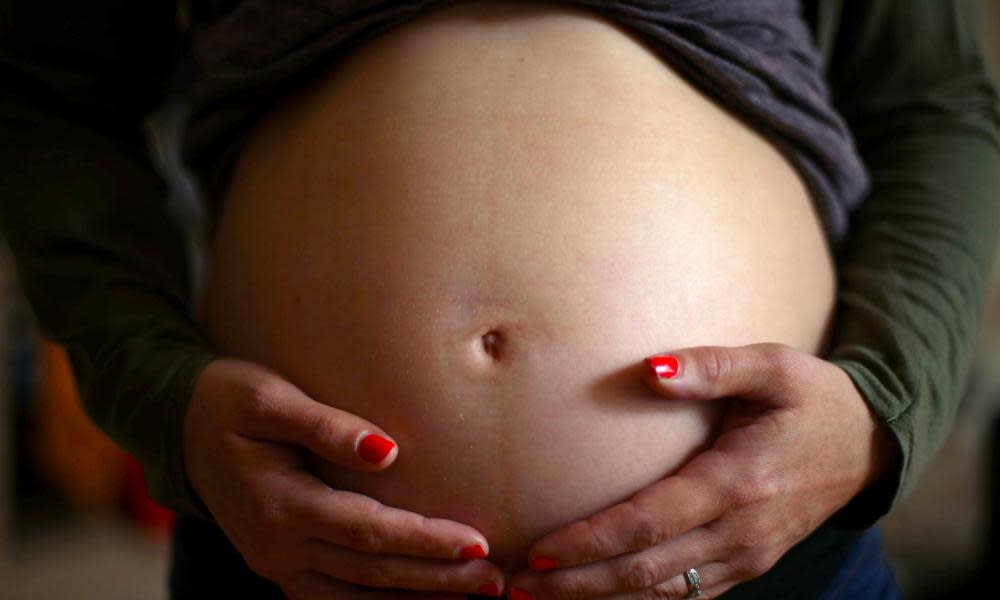State control over women's bodies is an unforeseen outcome of the Covid-19 crisis

It’s been quite a week to have a womb in the UK.
First, pregnant women were suddenly categorised as vulnerable, and advised to stay home by the government. But then some of them were told to come back into work by their employers – including the riskiest of all, the NHS.
This week on my radio programme I heard from the husband of one such pregnant woman who works in our beleaguered health service and simply doesn’t know what to do.
The official guidelines from the Royal College of Obstetricians and Gynaecologists (RCOG) and the Royal College of Midwives (RCM) say that pregnant women should be able to choose whether or not to work, and this decision should be supported by their employers.
Simply put, we'd follow what Australia and the US already do: speak to the GP on the phone and take two pills at home
But this leaves women working in healthcare with an uncomfortable decision: do they protect the lives of their unborn, or those seeking treatment? Pregnant women are naturally already the most risk-averse group in society. Tell them that you don’t know if it’s safe for them to go to work, so they’d better not go, and they really won’t want to go. It’s an almost impossible choice to be forced to make.
Next came the weirdest about-turn from the government – which, at the time of writing, still hadn’t been explained. Last Monday the health secretary, Matt Hancock, signed off on a decision to allow early medical abortions at home during the pandemic. Simply put, we would follow what Australia and the US already do and allow women to speak to a doctor over the phone, and take two pills at home to perform the procedure. This would ease pressure on clinics and GPs – and remove the need for anyone to see a practitioner in person.
The vast majority of abortions in this country happen in the first few weeks, and so this is the way most procedures take place. The move was welcomed by both the RCM and the RCOG.
And yet, a few hours later, it was rescinded with the most meagre of explanations – that the advice, carefully worded and sent out was “published in error”, leaving doctors utterly puzzled. Neither Hancock – admittedly a man with much on his mind – or the Department of Health have commented further.
Lesley Regan, the former president of the RCOG, shared her fears with me on air: “If you make abortion difficult for girls and women to access, the problem does not go away. All that happens is that it goes underground and becomes unsafe.”
She also said changing the official guidance wouldn’t have made abortion any easier: “We know that this is incredibly safe and very, very easy. They would just receive their drugs by post, and they would be spoken to on FaceTime or Skype to obtain consent. All of the other precautions will be taken, we’re just trying to cut down on unnecessary travel and unnecessary exposure both in terms of women and hospital and clinical staff.”
At a time when there also are concerns about women and men being holed up together, with difficulty in getting coils fitted and access to the contraceptive pill (which, yes, also still requires a visit to a GP for initial prescription or renewal – GPs who none of us can easily see or should burden right now), a potential coronavirus baby boom does not naturally mean all of those pregnancies are wanted.
In a perverse contrast, consider the deeply unenviable position of those longing for a child, and already into a cycle of IVF, having their embryo transfers cancelled, in some cases just hours before.
As someone who has been on that vile journey, drugged up on a toxic cocktail of hormones and hope, having the final stage cancelled is almost too painful to even consider, let alone experience. I spoke to several of those women this week too.
One can understand the rationale of NHS IVF clinics needing to pack up shop to lend all support to the coronavirus cause, and the argument that we shouldn’t be helping people have babies at this time – from both a resource and safety point of view. But is a similar ban going to be placed on the fertile? I think not.
Related: Can't move in with your partner? Here's how to survive isolating without them | James Greig
My point is this: when you link all these cases together, women’s bodies are increasingly coming under state control – however unwittingly.
The bottom line? We need to trust women to know their bodies, their limits and their rights, and make our access to medicine as easy as possible. We didn’t choose to be the ones able to carry children – but restricting our choices, even in a time of national crisis, smacks of Margaret Atwood’s The Handmaid’s Tale. And nobody needs anything to get more dystopian than it is already.
• Emma Barnett is a presenter on BBC Radio 5 Live and on BBC2’s Newsnight. She is the author of It’s About Bloody Time. Period


